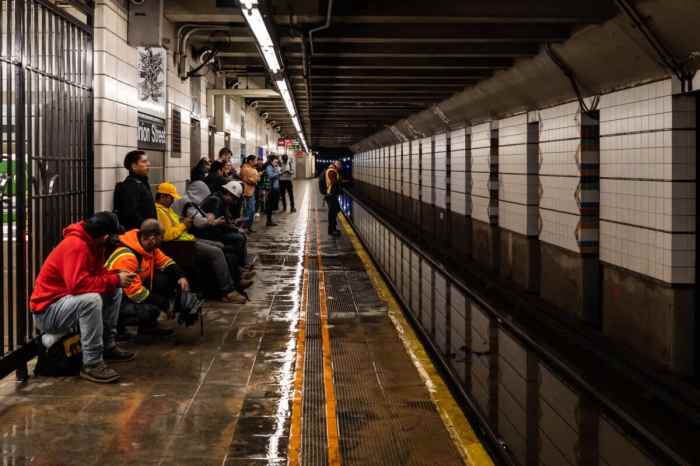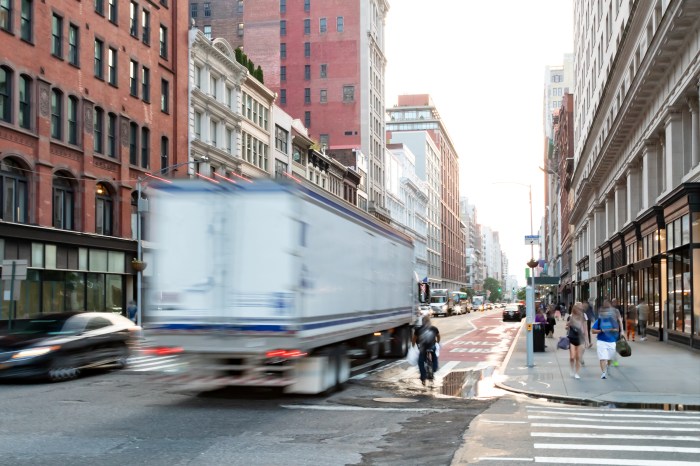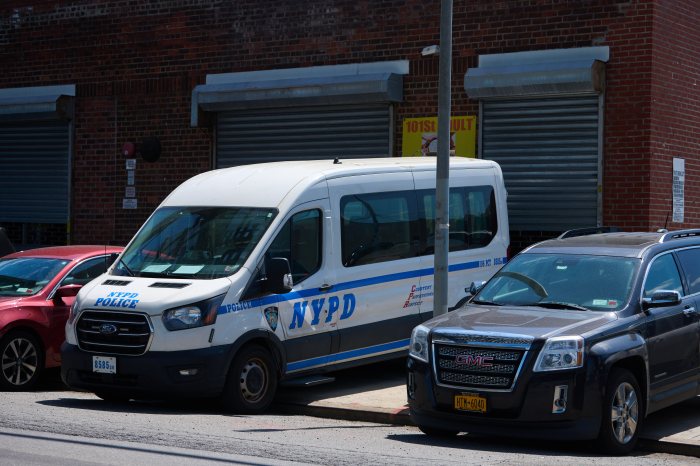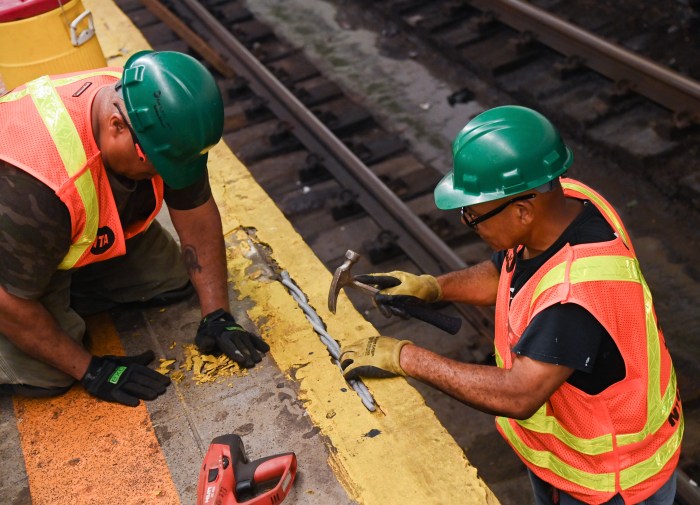
Activists are fed up with crummy MTA service.
A broad collection of advocacy groups formed a “Fix the Subway” coalition Tuesday to begin pressuring state lawmakers to embrace congestion pricing as a means to pay for crucial improvements to subway, bus and paratransit service.
“We’re here today because fixing the subway is a social justice issue,” said Rebecca Bailin, a campaign coordinator at Riders Alliance, a coalition member. “If our subways can’t get us where we need to go because they’re breaking down all the time, because our fares keep going up, because they’re overcrowded, then . . . we’re locking everyday New Yorkers out of everything this city has to offer.”
Riders Alliance joined 27 other grassroots groups, including environmental and social justice organizations like the New York City Environmental Justice Alliance and New York Communities for Change, in seeking to make it politically difficult for state elected officials to overlook the failing, state-controlled subway and bus service in the city during the next budget process and legislative session.
The coalition will be lobbying lawmakers and rallying as talks pick up. They’re calling for lawmakers to finally pass a comprehensive congestion pricing plan for the city — like the option the Fix NYC panel proposed last year, which would add tolls for trucks and private vehicles entering Manhattan’s central business district below 60th Street. The revenue generated by the tolls, estimated to be as much as $1.5 billion annually, would help fund the MTA’s 10-year, transit modernization plan known as Fast Forward.
The plan, unveiled in May with an estimated $40 billion price tag, would replace the majority of the subway’s signals with a modern equivalent; update the subway’s train car fleet and bring redesigns to every borough’s bus network, among many other changes. MTA officials believe the authority will need multiple new revenue sources to enact such a plan. Congestion pricing alone wouldn’t suffice.
But a series of high-profile subway failures in the summer of 2017 wasn’t enough for the state legislature to take action in the 2018 session and the subway system has remained fairly unreliable — even though the MTA believes it has stabilized service. That summer, Gov. Andrew Cuomo announced his support for congestion pricing, but failed to gain momentum for a complete congestion pricing scheme among lawmakers.
The coalition hopes the ongoing subway meltdowns and the mounting frustration that comes with them will be enough to finally spur action in Albany. Lawmakers return in January for the next legislative session.
“We are seeing that, at least among our membership, this is becoming an increasingly more important issue as people are having to add in 30 minutes to an hour in extra time just to be able to get anywhere,” said Zachary Learner, the labor organizing director for New York Communities for Change. “I think that this is becoming an increasingly important issue and that this is going to be something that a lot of elected officials across the state are realizing they just have to deal with, that this is not just going away.”
Since Fast Forward’s release this spring, NYC Transit president Andy Byford and Cuomo, who effectively controls the MTA, have said that the city must work to fund at least a portion of the plan. Cuomo and de Blasio disagree on the merits of congestion pricing and have already begun sparring over Fast Forward.
“The Governor single-handedly revived the idea of congestion pricing and succeeded in passing the first phase of the Fix NYC plan including a fee on for-hire vehicles and the fully funded subway action plan,” said Peter Ajemian, a spokesman for Cuomo, in a statement. “The Riders Alliance time would be better spent convincing those who need convincing — members of the Legislature and City Hall.’’
Byford seems confident the funding will come through, one way or another, as he plans extensive outreach to lawmakers and officials at the city and state levels.
“We have a plan and we’re intending to prevail,” Byford said at the most recent MTA board meeting last month. “We’ll make that compelling case.”
The coalition will focus on securing funding via Albany, where it is unclear if opposition will waiver after the state’s general election this November. There are still lawmakers who oppose congestion pricing, including Queens Assemb. David Weprin, who believes new tolls would place an unfair burden on the middle class residents of the outer boroughs and on small business owners.
The office of the current Senate majority leader, John Flanagan, did not respond to a request for comment, though Flanagan has previously voiced opposition to new tolls.
Michael Whyland, a spokesman for Assembly Speaker Carl Heastie, said in an email that “the speaker strongly supports efforts to fix the subways and . . . will continue to discuss these issues with our members.”
State Sen. Michael Gianaris, of Queens, a proponent of congestion pricing as a means to fund the MTA, said the idea is still a “hard sell” in Albany, though he believes that could change in November.
“There are colleagues that are further out from the central business district who have concerns and that’s what doomed it 10 years ago and it’s still those political dynamics that need to be addressed,” Gianaris said.
“I think a lot of the answers depend on the election and having a Democratic majority that will focus on the needs of the transit system,” he added. “It all depends on who’s in charge.”

















